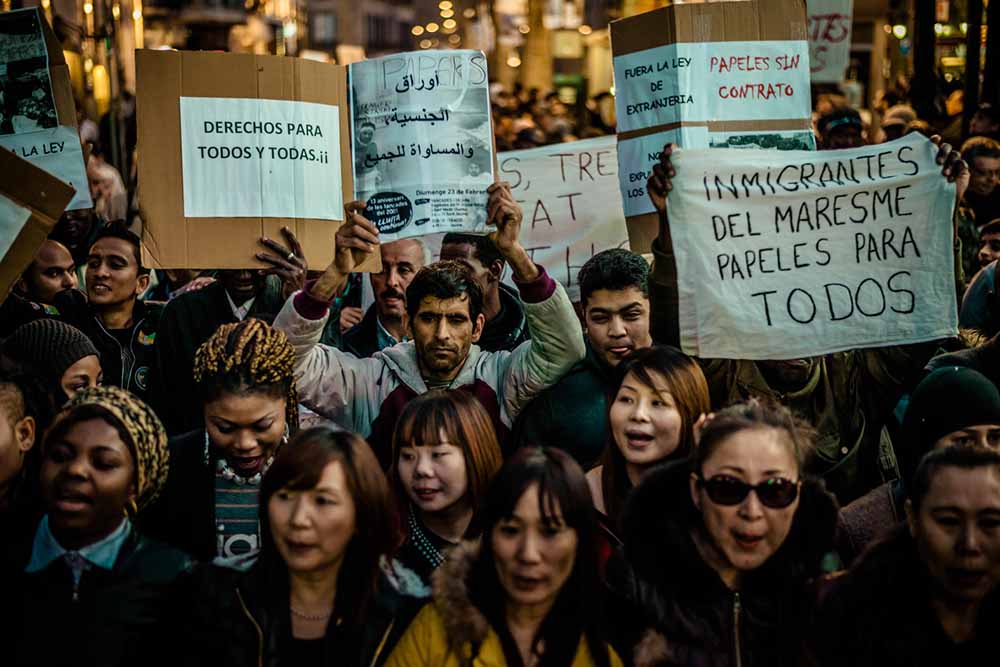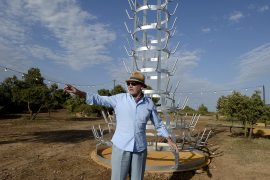[dropcap letter=”A”]
third of the births in Catalonia are of foreign mother. In addition, newcomers have on average more children than autochthonous women, despite having lower incomes. The European Central Bank warns that the resources needed in relation to aging will be a problem that, if not corrected, will jeopardize the sustainability of public finances. Spain, according to data from the National Institute of Statistics, had a negative vegetative balance in 2017, registering 31,245 deaths more than births. The birth rate was 8.4 births per thousand inhabitants, four decimals less than those registered in 2016.
Economist and political scientist Manuel Blanco has devoted much of his work to the demographic problem in Spain and warned about the abandonment of villages in Galicia, reminding that although the countdown -to put an end to it- has begun, Spain does not seem to anticipate the impact that will have the fact of not being able to maintain pensions. The situation could be expressed differently: in order to support the current pension system, pensioners should only live up to 76 years. The problem shows how erroneous is the agenda of priorities for governments. This is a matter of rethinking immigration policy, helping women to have children without losing their job or job promotion. It requires a new approach to manage the progressive use of robotics in the sphere of companies and the need to observe a new form of land management, so that it is not unoccupied, and settlements concentrated only in urban areas. The fertility diminution drags societies to be more conservative, less dynamic and less open to changes. Antonio Garrigues Walker warned in an article published in El País: “an old country loses strength, intellectual curiosity, sense of risk, ambition”. Rejuvenating the country involves investing in day care centers, promoting incentives to increase birth rates and breaking with the idea that only an egoistic society can survive in a globalized world.
 Catalonia, that has been discussing its identity over the last few years, will have to consider the low birth rate as a new front. This will involve taking steps, in order to avoid turning its aspirations into an unrealistic effort. The whole Europe is debating how to face the demographic problem while being unable to deal efficiently with the problem of immigration and refugees. The International Monetary Fund sees the entry of 5.5 million foreigners in Spain up to 2050. This projection affects the European Union and all the societies and, consequently, our way of life. Without a rigorous, ambitious, achievable plan together with a broad political consensus for promoting birth rates and defending issues such as pensions, identity and sustainability of institutions -the pillars of the State- will be endangered. It is a challenge that has an impact on future generations and it is the responsibility of the state to deal with it as soon as possible.
Catalonia, that has been discussing its identity over the last few years, will have to consider the low birth rate as a new front. This will involve taking steps, in order to avoid turning its aspirations into an unrealistic effort. The whole Europe is debating how to face the demographic problem while being unable to deal efficiently with the problem of immigration and refugees. The International Monetary Fund sees the entry of 5.5 million foreigners in Spain up to 2050. This projection affects the European Union and all the societies and, consequently, our way of life. Without a rigorous, ambitious, achievable plan together with a broad political consensus for promoting birth rates and defending issues such as pensions, identity and sustainability of institutions -the pillars of the State- will be endangered. It is a challenge that has an impact on future generations and it is the responsibility of the state to deal with it as soon as possible.
Featured image: Immigrants demonstrate for immigration rights in Barcelona. Photo of Matthi / Alamy Live News




















